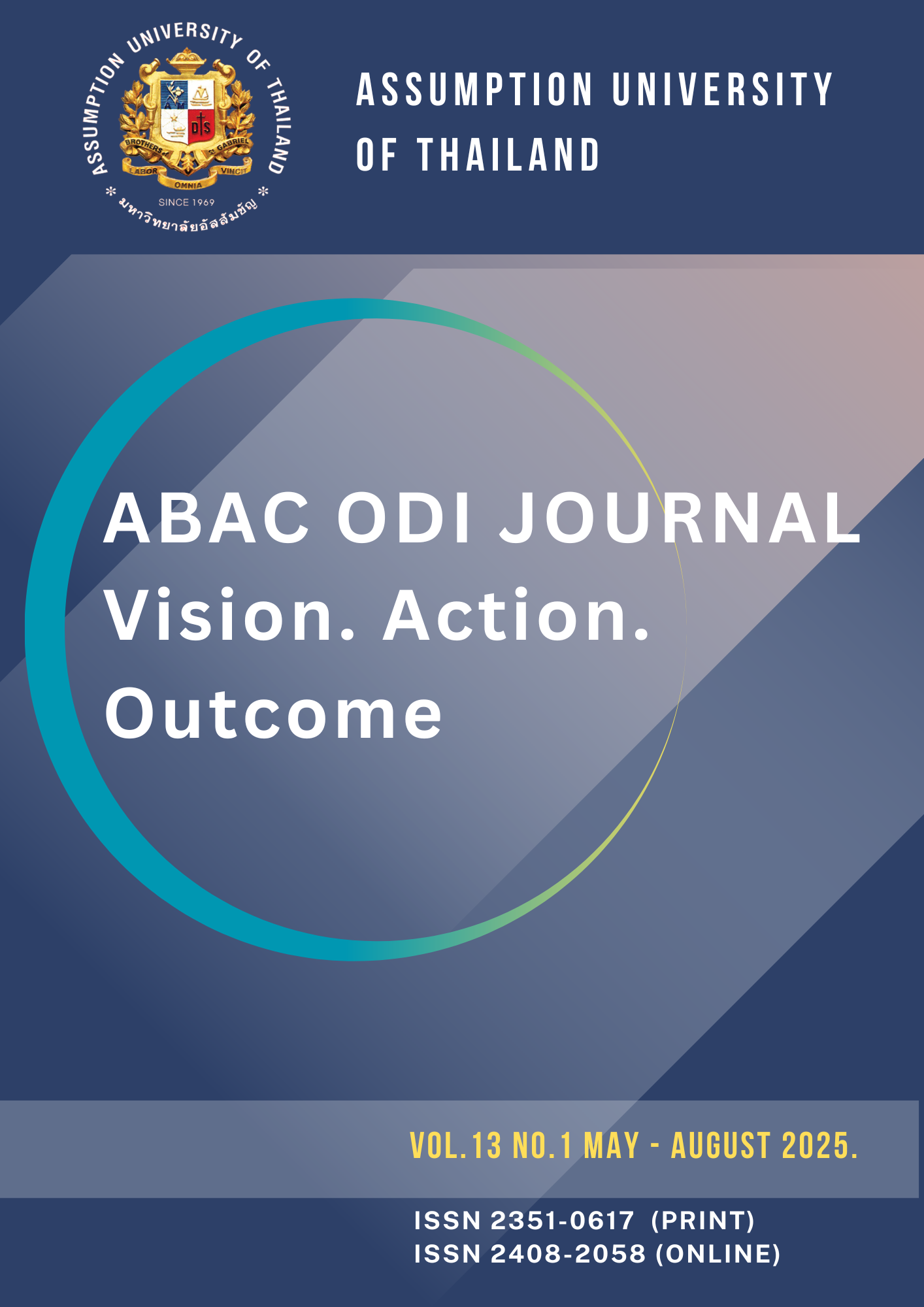Balancing Luxury and Sustainability: A Case Study of Selected Island Resort in Cambodia
DOI:
https://doi.org/10.14456/abacodijournal.2025.34Keywords:
Luxury, Sustainability, Full Moon Island Resort, Cambodia, Qualitative Research.Abstract
This study adopts a qualitative approach to explore the experiences and perspectives of guests, staff, and other stakeholders at island resort hotels in Cambodia. It focuses on the coordination between luxury hospitality and sustainability, uncovering diverse insights and real-life experiences. Among 9 interviewees, four were guests traveling as groups, two were stakeholders (the General Manager and owner representative), one is a local community member involved in resort activities, and two were sustainability experts (a former Minister of Tourism and a former Committee Member of the Cambodia Community-Based Ecotourism Network). Participants were selected through purposive and snowball sampling techniques. Data collection involved, an interview with multiple interviewees from local to the expert to provide an in-depth understanding of how luxury and sustainability coexist in Cambodian island resorts. Moreover, the analysis involves identifying and reporting patterns within the data to understand the interplay between luxury hospitality and sustainability practices. The findings reveal that guests value a blend of luxury, eco-friendly practices, and natural surroundings, with sustainability playing a key role in their satisfaction and decision-making. Resort managers and experts highlight innovative strategies, community engagement, and environmental stewardship as vital to enhancing guest experiences. The study highlights practices like renewable energy, eco-friendly materials, locally sourced food, coral reef restoration, and cultural projects to strengthen community ties. To achieve a balance between sustainability and luxury, island resorts integrate some practical measures such as optimizing energy and water use with personalized elements, including enhancing guest experiences and ensuring well-trained staff by innovating some approaches in technology and effective waste management further supporting their commitment to sustainable luxury. This study concludes that Cambodian island resorts can balance luxury and sustainability, offering a model for top-notch guest experiences.
References
Berry, L., Parasuraman, A., & Zeithami, V. (1994). Improving service quality in America: Lessons learned. Academy of Management Perspectives, 8, 32-45.
Buckley, R. (2012). Sustainable tourism: Research and reality. Annals of Tourism Research, 39(2), 528-546.
Choi, H. C., & Sirakaya, E. (2006). Sustainability indicators for managing community tourism. Tourism Management, 27(6), 1274-1289.
Cioccarelli, E. (2023). Aligning luxury with responsibility: An in-depth study of ESG implementation and communication in Boutique Hotel [Doctoral dissertation]. Universidade Catolica Portuguesa.
Deery, M., Jago, L., & Fredline, L. (2012, February). Rethinking social impacts of tourism research: A new research agenda. Tourism Management, 33(1), 64-73.
Gilmore, J. H., & Pine, B. J. (2002). Authenticity: What consumers really want. Harvard Business Press.
Morrison, A. M., & Buhalis, D. (2024). Routledge handbook of trends and issues in tourism sustainability, planning and development, management, and technology. Routledge.
Parasuraman, A., Zeithaml, V. A., & Berry, L. L. (1988). SERVQUAL: A multiple-item scale for measuring consumer perceptions of service quality. Journal of Retailing, 64(1), 12-40.
Sims, R. (2009). Food, place and authenticity: local food and the sustainable tourism experience. Journal of Sustainable Tourism, 17(3), 321-336.




